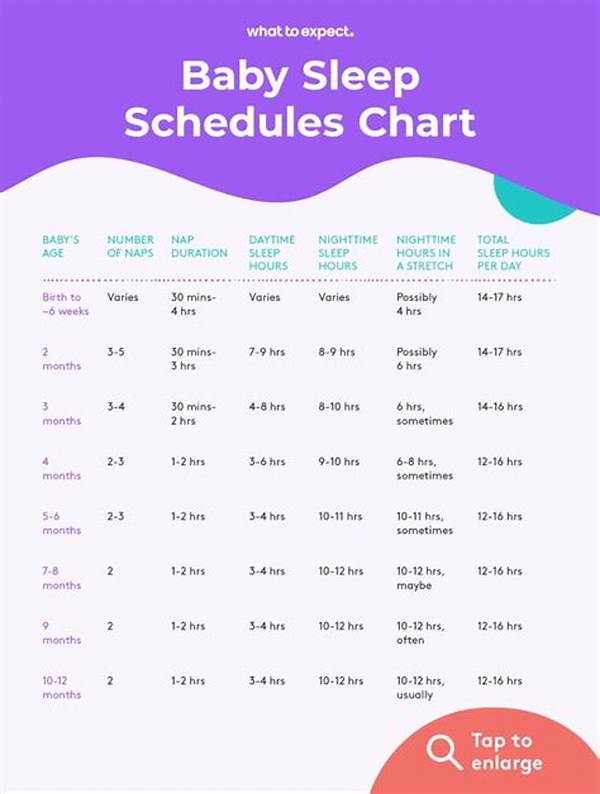Creating a structured article that adheres to your detailed requirements involves developing sections with specific word counts, themes, stylistic approaches, and contextual integration of the topic ‘baby sleep schedule.’ Below is an outline and content to match your needs.
Read More : Stop The Night Wakings: 5 Shocking Reasons Your Toddler Is Still Getting Up At 3 Am!
—H1: Baby Sleep Schedule
There’s an art to getting your baby to sleep, a delicate dance performed nightly in homes across the globe. If you’re a new parent, chances are you’ve glared at the clock at 2 AM, bleary-eyed, wondering just when your precious bundle of joy might decide to tire out. Welcome to the journey of mastering the baby sleep schedule—a mysterious realm that all parents must navigate. Babies need sleep for their growth and development, and establishing a reliable schedule can not only help them but also restore some sanity to your routine. While sleepless nights are in the fine print of every parenting contract, with the right approach, they don’t have to be the norm.
So why does setting a baby sleep schedule sound like a mythical parenting achievement only attainable by a select few? It’s because babies, like adults, have their own unique patterns and rhythms; understanding and working with these is key. Envision the sleep schedule as your baby’s unique playlist, with heavy rotation needed for those ‘greatest hits’—calming nighttime routines that signal sleepytime is near. Establishing the right schedule requires patience, creativity, and sometimes a fair bit of humor.
Let’s delve into the heart of the matter by breaking down the most effective strategies for creating a foolproof baby sleep schedule. Whether you’re dreaming of nights filled with restful hours or eager to see your little one blossom with a solid routine, this article will guide you through essential tips and creative solutions to your sleep-related woes.
Understanding the Basics of Baby Sleep Needs
Babies don’t come with instruction manuals, but they do come with scientifically-backed sleep needs that evolve as they grow. For newborns, sleep patterns are pretty random and heavily intertwined with their immediate needs, such as feeding. As they grow, you can gradually introduce a baby sleep schedule that is consistent and beneficial for both you and your baby.
The critical point is to recognize variations in sleep needs across different ages. For instance, a newborn might require up to 17 hours of sleep per day, which gradually reduces as they transition into toddlerhood. While these numbers are helpful, remember your baby is unique, and so is their sleep schedule.
Creating and Adjusting a Baby Sleep Schedule
+ Expert Perspective: Pediatricians often underscore the importance of consistency and routine in establishing a sleep schedule that works.+ Parental Insights: Many parents have shared testimonies on forums and parenting blogs, praising the transformative power of a structured baby sleep schedule in achieving more restful nights.Adjustments and Troubleshooting
—H2: Challenges Parents Face with Baby Sleep Schedules
The realm of baby sleep is filled with puzzles; unraveling them is where real parenting magic begins. From deciphering the late-night cries to implementing the elusive “perfect” schedule, here are the challenges most parents encounter, accompanied by some top tips for navigating them successfully.
H3: Tips for Establishing a Successful Baby Sleep Routine
For more insights and tips to establish a baby sleep schedule, consider consulting with a child sleep specialist. Their expertise can shed light on personalized strategies tailored to your baby’s specific needs.
—5 Examples Related to “Baby Sleep Schedule”:
—H2: Expert Advice on Baby Sleep ScheduleH3: Gaining Clarity Through Observation and Documentation
Document your baby’s sleep patterns with a detailed diary. This practical approach allows you to notice patterns over time, aiding in fine-tuning your baby sleep schedule. By observing your baby’s natural sleepy cues, you can adapt the schedule in a way that closely fits their natural cycles, enhancing effectiveness and ensuring your baby gets the restful sleep they need.
